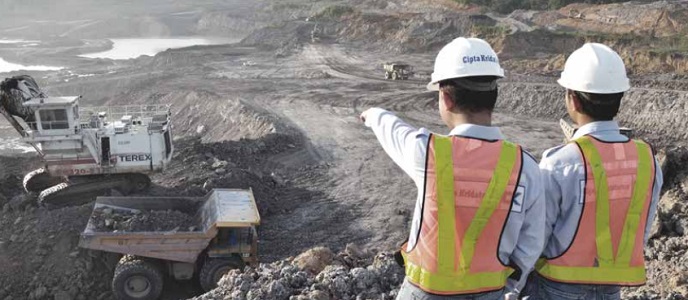2009 Mining Law Indonesia: Mineral Ore Export Ban Delayed until 2022?
Indonesia is currently discussing the revisions that need to be made to the 2009 Mining Law (Law No. 4/2009 on Mineral and Coal Mining). As there is a lack of progress with the development of smelting (processing) facilities in Indonesia, authorities may decide to postpone the full implementation of the ban on exports of unprocessed mineral ore by five years. Initially, this ban was supposed to come into effect in January 2014. However, it was pushed back to 11 January 2017 to allow more time for smelter development in Southeast Asia's largest economy.
Interim Minister of Energy and Mineral Resources Luhut Pandjaitan, who temporarily replaces Sudirman Said after the latest cabinet reshuffle, told reporters that authorities consider to push back the deadline for the full ban on exports of unprocessed mineral ore by between three and five years in order to give local miners more time to develop smelting facilities.
Although this export ban had already been announced in 2009, Indonesian miners have not been eager to develop processing facilities to turn their raw materials into products positioned higher up in the value chain. This reluctance was perhaps fed by miners' disbelief that the government would really push for the implementation of the ban as it implies breaching long-standing Contracts of Work (that allow for mineral ore exports, for example copper concentrate).
Meanwhile, with commodity prices having been weak since 2009 (particularly going downward after 2011) few miners were eager to invest in costly smelting facilities. Moreover, Indonesia is known for its flip-flop policies and considering that the country constitutes a young democracy the fruits of policy-making have been more volatile compared to long-established democracies, particularly when a new government arrives on the scene. All in all, the majority of miners have been in a "wait and see-mode" before investing too much in smelters.

Indeed, just before 11 January 2014 (when the mineral ore export ban should have been put in place) then-President Susilo Bambang Yudhoyono postponed the ban by three years due to insufficient smelting capacity available in the country. This lack of processing facilities meant that the implementation of the export ban would have damaged Indonesian miners' earnings and therefore also undermining government revenue from the mining sector. However, those miners that wanted to resume mineral ore exports after January 2014 needed to comply with various demands from central authorities. Mandatory contract renegotiations included that these miners needed to be committed to smelter development, had to pay higher export taxes and higher royalties before mineral ore exports could be resumed.
Minister Pandjaitan said the request to revise the 2009 Mining Law was proposed by the nation's House of Representatives (DPR) and therefore the government will sit down with the DPR to hear their input. However, Pandjaitan said that any new regulations will have to include tough sanctions for those miners who are not committed to smelter development. If not, we can expect to see the continuation of smelter development at a very slow pace. Meanwhile, similar to the situation now, those miners who can provide evidence that their smelter development goes according to plan, will be offered the possibility to resume mineral ore exports.
There have also been reports that several miners stopped construction of their smelters (even though these facilities were already completed for 35 percent) due to problems related to their cash flow. With the export ban deadline approaching (11 January 2017) it was considered no longer economically viable to continue these projects.
Timeline of the Export Ban 'Debacle' in Indonesia's 2009 Mining Law:
- January 2009; Indonesian President Susilo Bambang Yudhoyono signs Law No. 4/2009 on Mineral and Coal Mining (2009 Mining Law). Two articles in this law require all local miners to refine or smelt their raw materials in case they want to export mining materials. This move would enhance the country's downstream industries, give it added value, and reduce the nation's dependence on imports.
- January 2014; the export ban is pushed back by three years by President Yudhoyono. Companies can resume exports of mineral ore but need to comply with several demands, including higher export taxes (but these can decline in case smelter development progresses) and be committed to the development of smelters (including the mandatory payment of a deposit).
- October 2014; after the passage of Law No. 23/2014 on Regional Government (which stipulates regional governments no longer have the authority to issue and revoke mining licenses), voices are heard in the DPR that the 2009 Mining Law should be revised.
- January + February 2016; talks about revising the 2009 Mining Law start and the plan is included in the 2016 National Legislation Program.
